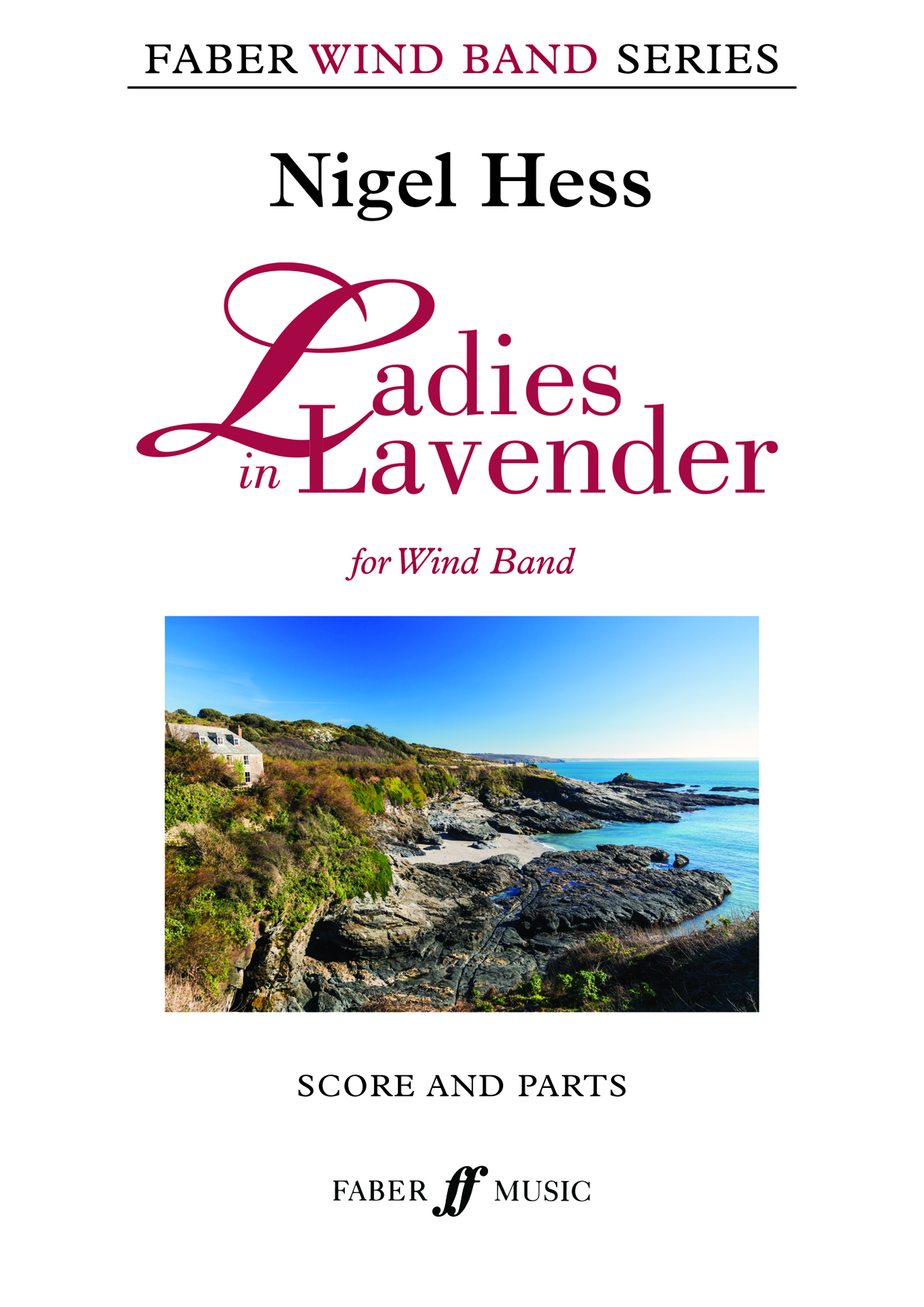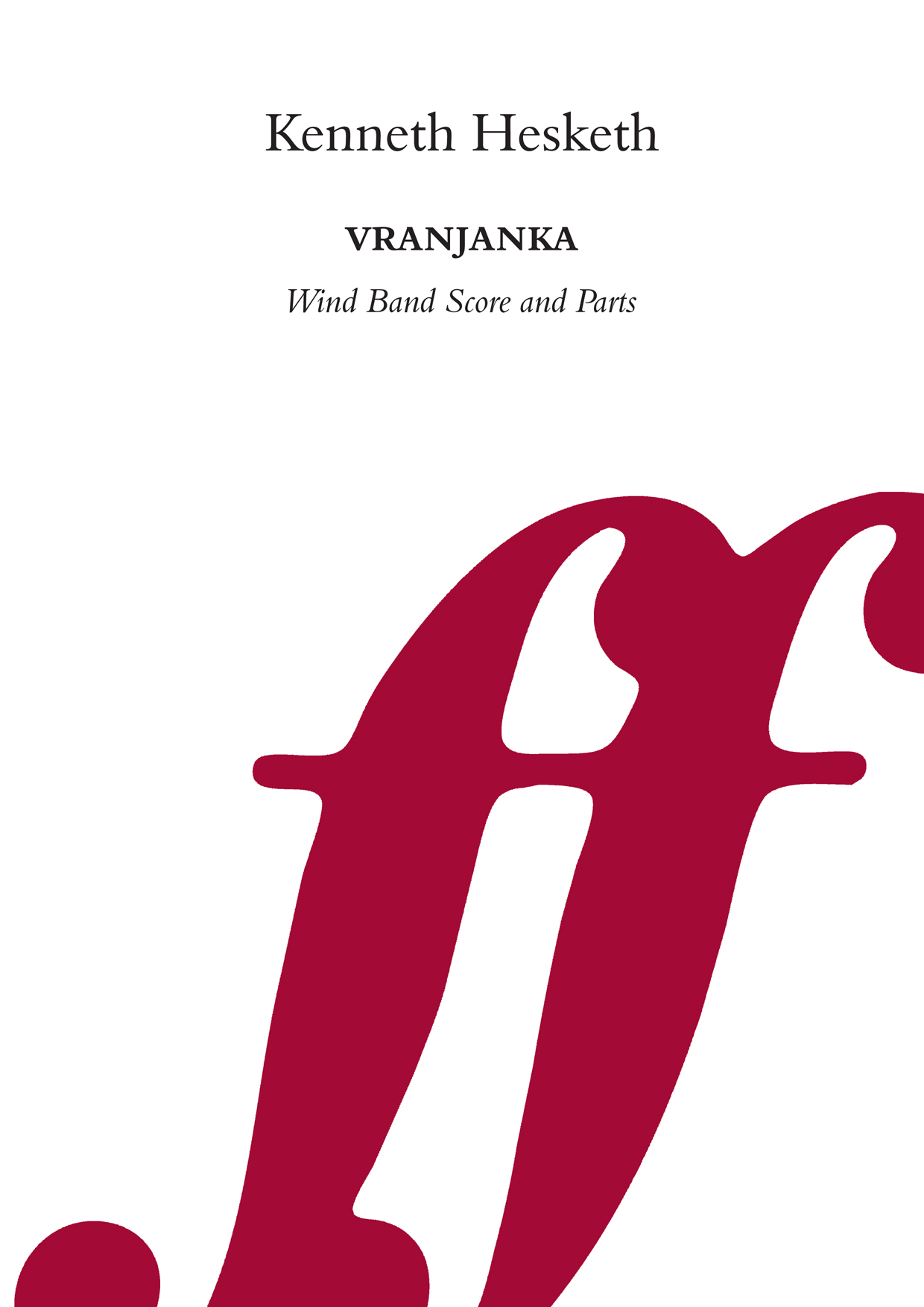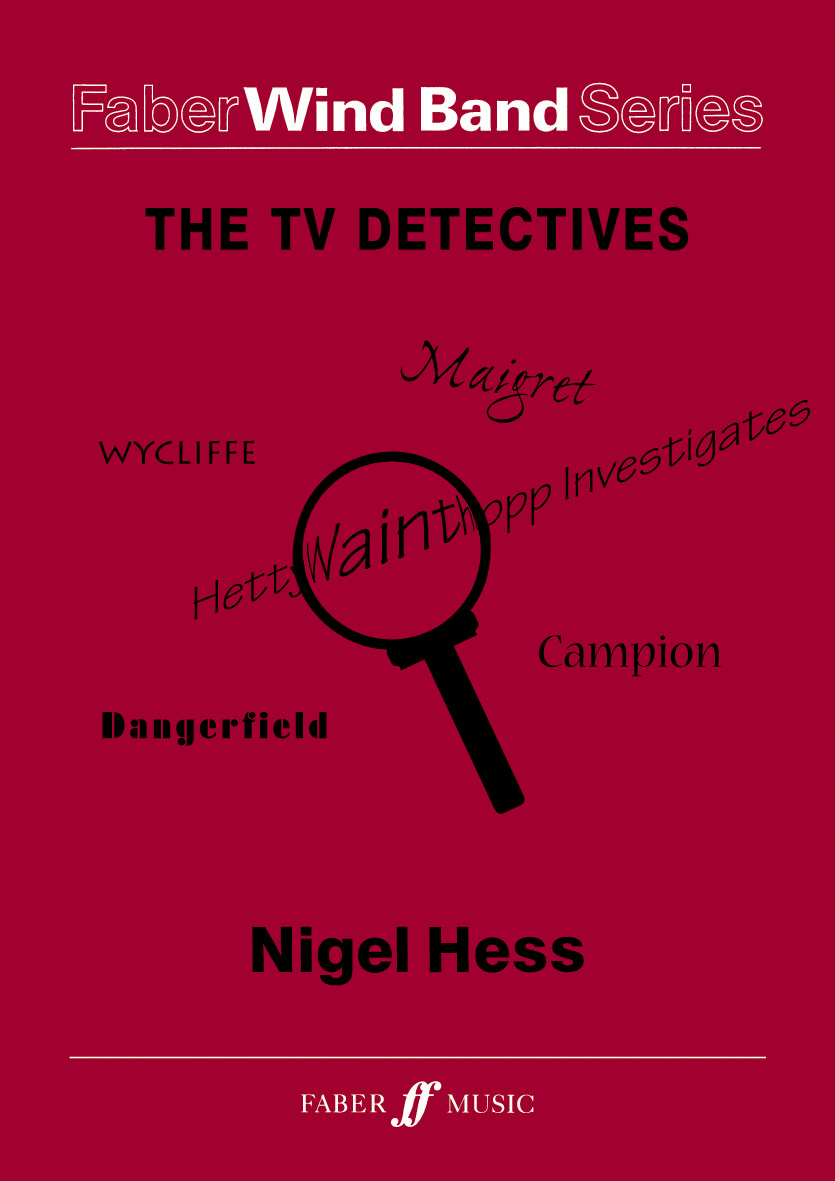Results
-
£5.95
Waltz in A Flat - Score only - Johannes Brahms
Program NotesJohannes Brahms was born in Hamburg in 1833 but spent much of his working life in Vienna, where he was one of the leading figures in what is generally known as the Romantic period. Such was his significance that he is often referred to as one of the "Three Bs" alongside Bach and Beethoven! His compositions range from piano solos to major works for choir and orchestra and, as a virtuoso pianist, premiered many of his own works. His beautiful Waltz in A-flat Major is an item of repertoire that is familiar to many - even if it's not known by name! Published as one of a set of 16 waltzes for piano (Opus 39:15), it has been transcribed here for wind band by Brian Bowen.
Estimated dispatch 7-14 working days
-
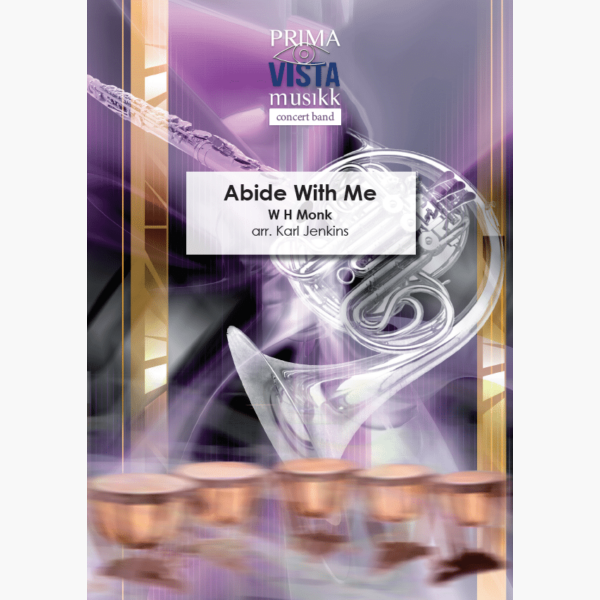 £49.95
£49.95Abide With Me - William Henry Monk - Karl Jenkins & Peter Graham
The lyrics to Abide With Me were written as a poem in 1847 by Scottish Anglican Henry Francis Lyte. Lyte wrote the poem and set it to William Henry Monk's hymn tune 'Eventide' as he lay dying from tuberculosis. The...
Estimated dispatch 5-7 days
-
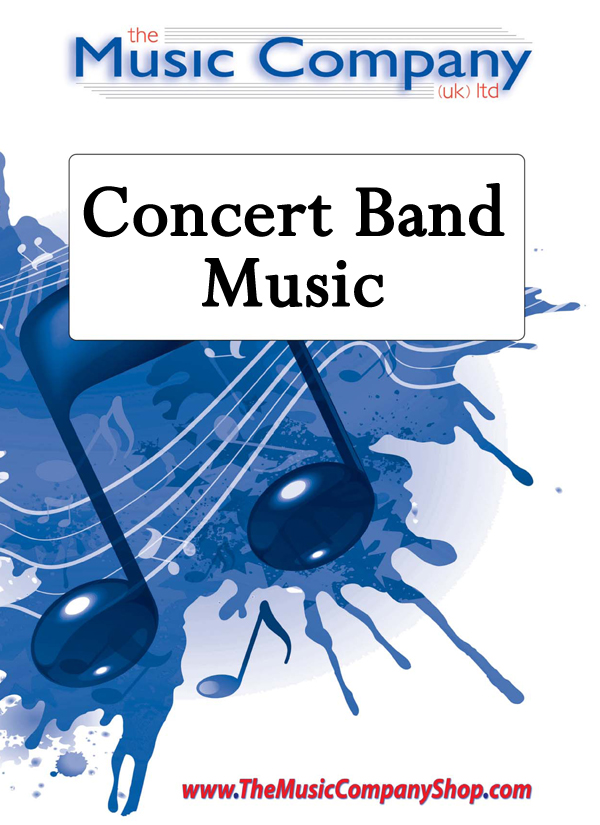 £55.00
£55.00Merry-Go-Round - Tim Paton
Programme notes from the composer, Tim Paton:I heard a recording of a fairground organ playing a fabulous concert waltz from the early 20th century. It struck me that this music was in the same league as another popular concert waltz, "Nights of Gladness". I aurally transcribed it, and set about creating an exciting piece, aiming to capture the 'fun of the fair'.
In stock: Estimated delivery 1-3 days
-
£45.00
Theme from Ladies in Lavender - Nigel Hess
Set in a picturesque coastal Cornwall, in a tight-knit fishing village in the 1930s, Ladies in Lavender starred Judi Dench and Maggie Smith as sisters Ursula and Janet Widdington. A young Polish violinist from Krakow, Andrea, is swept overboard from a ship bound for America. When the sisters discover the handsome stranger on the beach below their house, they nurse him back to health. However, the presence of the musically talented young man disrupts the peaceful lives of both Ursula and Janet, and the community in which they live. This arrangement of the much-loved theme from the film has been arranged for wind band.
In stock: Estimated delivery 1-3 days
-
£75.00
Vranjanka - Kenneth Hesketh
Vranjanka (pronounced VRAHN-yahn-kah) means "From Vranje," a town in southern Serbia. It is loosely based on the traditional folksong ano Duo. The melody is extant in two versions, one in 7/8 and one in 3/4. The musical form of the piece starts with a fairly slow introductory section, a faster second section cast in a set of variations on the folksong. Vranjanka was commissioned by Timothy and Hilary Reynish in memory of their son William.
In stock: Estimated delivery 1-3 days
-
£65.00
The TV Detectives - Nigel Hess
The TV Detectives brings together five of Nigel Hess's best-known television themes (Dangerfield, Campion, Wycliffe, Maigret and Hetty Wainthropp Investigates), all originally written for small-screen sleuths in whodunits that have been enjoyed by TV audiences worldwide.Dangerfield is a BBC series about a Warwickshire police surgeon, and originally starred Nigel le Vaillant, before Nigel Havers took over the lead role. Campion, also from the BBC, was based on Margery Allingham's stories of a mild-mannered 1920s gentleman detective, played by Peter Davison. Wycliffe was a long-running HTV series set in Cornwall and starred Jack Shepherd as a somewhat dour and low-key DCI - but, of course, he always solved the case! Michael Gambon starred in Granada TV's latest incarnation of the famous French detective Maigret, while Patricia Routledge played the OAP sleuth to perfection in Hetty Wainthropp Investigates, another popular BBC series. For the first time these popular tunes, which conjure up their programmes perfectly, have been arranged for wind band in a continuous suite.
In stock: Estimated delivery 1-3 days
-
 £37.76
£37.76Over London Bridge (Wind Band) English Trad. arr. Andrew E. Lawson
Inspired by early works for wind band by British composers Gustav Holst and Ralph Vaughan Williams, this charming concert work is based on an English folk song called As I walked over London Bridge. The arranger Andrew E Lawson writes: 'While I found this folk melody in a set of cello etudes written by Vaughan Williams, it was text that solidified my decision to use this melody, and it is the text that brings some insight into the nature of this folk melody, as well as the nature of the additional original melodies and harmonies throughout the piece.' To view a rolling score video of the work please visit https://www.youtube.com/watch?v=oFWGJWbvqjM Sheet music available from : UK: www.wind-band-music.co.uk USA: www.cimarronmusic.com Difficulty Level: Medium Advanced Instrumentation: Flute 1-2 Oboe Bassoon Clarinet in Bb 1-3 Bass Clarinet in Bb Alto Saxophone 1-2 Tenor Saxophone Baritone Saxophone Trumpet in Bb 1-3 Horn in F 1-4 Trombone 1-2 Bass Trombone Euphonium Tuba Timpani Percussion 1-3
In stock: Estimated dispatch 1-3 days
-
 £37.76
£37.76The Spirit of St Louis (Wind Band) Andrew Wainwright
The winner of the RWCMD Cory Band Composition Prize 2018, this exciting and descriptive work is now available for wind band. The music tells the story of the first solo non-stop transatlantic flight (by Charles Lindbergh), including the moments before Lindbergh's upcoming attempt at the expedition, the turbulence that he experienced along the journey and finally the exultation of completing his mission. This will be a highly captivating piece for your band's concert programme that is also challenging and engaging for your musicians. Includes score and full set of parts. Sheet music available from : UK: www.wind-band-music.co.uk USA: www.solidbrassmusic.com Difficulty Level: Advanced Instrumentation: Piccolo Flute 1-2 Oboe English Horn Bassoon 1-2 Clarinet in Bb 1-3 Bass Clarinet in Bb Alto Saxophone 1-2 Tenor Saxophone 1-2 Baritone Saxophone Trumpet in Bb 1-3 Horn in F 1-4 Trombone 1-2 Bass Trombone Euphonium Tuba Double Bass (optional) Timpani Percussion 1-3
In stock: Estimated dispatch 1-3 days
-
 £75.52
£75.52Temperamental (Concert Band) Fendall Hill
This work by Fendall Hill was the set test for the 2021 National Brass Band Championships of New Zealand, B Grade. Here it has been adapted for Concert Band. The composer writes: 'J.S. Bach (1685-1750) is deemed by many to be the 'Ulimate Composer'. He added an incredible proportion to the DNA of western music, and his influence is heard in the music of today. Like many artists, he was not overly recognised as a composer during his lifetime, and it took an 1829 performance of the St Matthew Passion by Mendelssohn to ignite a recognition of his place in the music world, a place he has maintained ever since. This piece starts with a similar spark of rediscovery of the music of Bach. It contains arrangements of various works, interspersed with composition based on Bach's chord structures, sections in the style of Bach, and original sections inspired by the moods created along the way. The first section explores the Toccata, and great organ works. This leads into an exploration of his choral works, and a finale based on the Preludes. The word 'Tempered' has different meanings, and all seem to apply to the music of Bach, and these appeal to the musical, engineering and spiritual aspects of my personal life. His music reaches to the humanity and divinity, it has strength, structure and order that creates frameworks in which incredible complexity reigns; and the complexity leads to a wildness, a kind of craziness that represents a range of human moods, and can change without warning. The same piece of music affects people in very different ways. I don't know if it's Bach's music, or us, but it can seem out of control and under control at the same time - the combination is highly temperamental. To view a follow-the-score video of the work please visit: https://youtu.be/6CtYZmCoWIc Sheet music available from: UK: www.wind-band-music.co.uk USA: www.solidbrassmusic.com Difficulty Level: Advanced Instrumentation: Instrumentation: Piccolo Flute 1-2 Oboe Bassoon Clarinet in Bb 1-3 Bass Clarinet in Bb Alto Saxophone 1-2 Tenor Saxophone Baritone Saxophone Trumpet in Bb 1-3 Horn in F 1-4 Trombone 1-2 Bass Trombone Euphonium Tuba Double Bass Timpani Percussion 1-3
In stock: Estimated dispatch 1-3 days
-
 £64.19
£64.19Caprice (Euphonium Solo with Concert Band) Andrew Batterham
VIEW SCORE PDF Caprice was written for Matthew van Emmerik, to showcase his virtuosity in an engaging piece of concert music. The work is in theme and variation form, with the primary material being the theme from the last of Paganini's Ventiquattro Capricci per violino solo, a collection of 24 caprices for solo violin. This theme has been the inspiration for similar works by many composers since it was first published, including Liszt, Brahms, Rachmaninov, Benny Goodman and Andrew Lloyd Webber. In this work, the famous theme is treated to a more contemporary approach. The first variation, Capricious, relies on motor rhythms and jagged dialogues between the soloist and the band. It is couched in an organic scale reminiscent of the Phrygian mode. The second variation, Sad, is in direct contrast, acting as a traditional ballad and allowing the soloist to explore the expressive side of the instrument. The third variation, Energetic, is a micro set of variations in itself, designed to display the soloist's innovative technique and stamina. Each section is more challenging than the last, until the work concludes with a whirlwind dance at breakneck speed. Like all of Batterham's recent work, the musical language of Caprice draws upon classical, jazz, funk and ska elements to create a unique sound where anything can happen, and probably will. This arrangement was made possible through Matt's instigation and generosity. To view a video of Matthew van Emmerik performing the version with brass band please visit www.youtube.com/watch?v=D0hsvux_a5o To view a video of Fletcher Mitchell performing the version with piano please visit www.youtube.com/watch?v=NOZ6KRldDVo Sheet music available from : UK: www.wind-band-music.co.uk USA: www.solidbrassmusic.com Instrumentation: Euphonium Soloist Piccolo Flute 1-2 Oboe Bassoon Clarinet in Eb Clarinet in Bb 1-3 Bass Clarinet in Bb Alto Saxophone 1-2 Tenor Saxophone Baritone Saxophone Trumpet in Bb 1-3 Horn in F 1-4 Trombone 1-2 Bass Trombone Euphonium Tuba String Bass Percussion 1-3
In stock: Estimated dispatch 1-3 days

